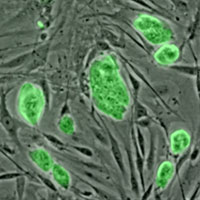Report recommends revision of bioethics law to allow therapeutic cloning and embryonic stem cell research
A report published by a French member of parliament has recommended relaxing the authorisation procedure for embryonic stem cell research and therapeutic cloning within France. The report was commissioned by the French government in preparation for the revision of the country's Bioethics Act, which is foreseen for 2009. Under current French legislation, passed in 2004, research on embryonic stem cells is permitted, although subject to a number of conditions. During an experimental phase until 2009, researchers can use embryos from consenting couples undergoing in vitro fertilisation if the couples do not plan to use them. Researchers also have to prove that the research is 'capable of enabling major therapeutic advances' which cannot be achieved by alternative means. Project proposals must be submitted to the National Biomedecine Agency (ABM) for review. The import of embryonic stem cells and storage of embryonic stem cells are also permitted. However, the 2004 decree prohibits therapeutic cloning. Drafted by Pierre-Louis Fagniez, the report is based on consultations with stakeholders, including researchers, philosophers, politicians, religious representatives and ethics experts. It argues the need to revise the current legislation by no later than 2009, in order to ensure that that the French scientific community is not left behind in this area of research. It also suggests that the review process of this legislation should be done on a continual basis by French parliament, the country's social and economic council and civil society. On the matter of stem cell research, the report stresses that equal weight should be given to research on embryonic stem cells and adult stem cells. 'Basic research should not be neglected,' says the report. It suggests that some conditions for the authorisation of embryonic stem cell research should be removed, namely the need to prove that such research is 'capable of enabling major therapeutic advances'. Lifting the other condition of a five-year experimental phase would encourage other teams to invest in embryonic stem cell research, notes the report. Overseeing these activities would be the ABM, which, the report points out, is well established and sufficiently capable of ensuring that research in this field is being carried out within the law. On therapeutic cloning, the report recommends that the Bioethics law should review the terminology used on account of concern among the public, who often mistake it for 'reproductive cloning'. To avoid misunderstanding, the report suggests the terms 'non-reproductive cloning' or 'somatic cell nuclear transfer', which better reflect the nature of the process. As for its authorisation, the report recommends that the ABM be given the responsibility to strictly control and monitor this type of research. Other recommendations in the report include encouraging the creation of a stem cell bank, replacing the procedure for importing embryonic stem cells, and making the bioethics legislation more transparent and easy to read. French Prime Minister Dominique de Villepin, to whom the report was submitted on 27 July, is in favour of its recommendations, according to Mr Fagniez. The report will contribute to work already underway in the government on a public information campaign to raise awareness of the ethical issues linked to the evolution of life sciences, which is expected to be announced in the autumn.
Countries
France



